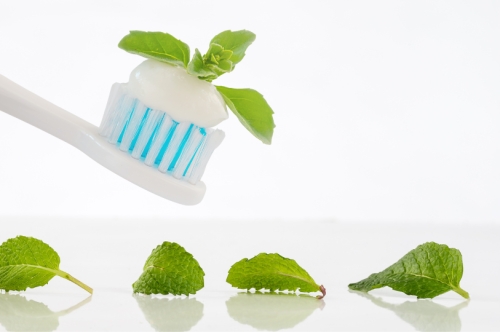ROLE OF SALIVA IN SENSORY PERCEPTION

Overview
Human saliva comprises 98% water with 2% organic and inorganic material secreted by salivary glands like parotid, submandibular or sublingual glands. Saliva is the first body fluid that encounters food. The saliva has more than 1000 proteins and these salivary proteins have various properties like α-amylase for starch digestion, mucin for lubrication, or lysozyme for antimicrobial activity. The primary functions of saliva are mouth lubrication, food breakdown, easy bolus movement, and comfortable swallowing, ultimately making eating a pleasant experience.
Saliva plays a crucial role in the sensory perception of any food. The taste perception while consumption is better associated with the concentration of taste compounds dissolved in saliva than the concentration mentioned on the product label. Saliva is responsible for transporting taste substances to taste receptors and protecting receptors from dryness or bacterial infection. Salivary water tends to dissolve taste substances from food and diffuse them to receptor sites.
The food flavour is a combination of aroma and taste (sweet, salty, sour, bitter, and umami), and saliva has different associations with them. The increased saliva flow is associated with reduced sodium or saltiness perception. Also, persons with high α-amylase activity can show reduced saltiness perception because the structural breakdown of starch by amylase lowers its mixing ability with water and thus reduces sodium transport to taste buds. It has been reported that salt taste is perceived only when its concentration is more than the NaCl concentration of saliva. So, saliva can influence the threshold level of salt taste.
One research study showed that the acidity of acidic solutions was more effectively neutralised by adults with higher salivary flow than those with lower. The high dilution effect of high salivary flow can be the probable reason. The more inadequate response to bitter taste components was observed in adults with higher salivary ionic zinc concentrations. Tobacco with bitter-tasting pyridine alkaloids, like nicotine, may affect overall taste perception by lowering salivary pH (average salivary pH is 6.75). The umami perception tends to be substance specific and varies with individual salivary biochemistry. The stimulation arrived from MSG has shown extended secretion of saliva.
It has been studied that saliva protein works through electrostatic interactions, hydrophobic effect, and other mechanisms to facilitate aroma release and its perception in food consumption. It is assumed that the aroma compounds can be trapped by salivary proteins like α-amylase and mucins depending on their structure. Also, salivary enzymes can even metabolise aroma chemicals or glycosidic aroma precursors, leading to a temporary modification of aroma perception. In one interesting experiment, it was found that the release of aroma was different when food was added with water, artificial saliva, and human saliva separately, which signifies the role of saliva in sensory perception. Although researchers are trying to replicate human saliva, artificial saliva still lacks the exact similarity in salivary interaction with aromatic compounds for releasing ability. One significant reason is that artificial saliva lacks enzymes that function in ester hydrolysis, oxidation of thiols or aldehyde degradation.
So differences in individual saliva can be an essential factor in different individuals' perceptions and acceptability of the same food product.
How does saliva help in oral perception of the food
Saliva helps in the oral perception of food by moistening the food and allowing for easier chewing and swallowing. It also contains enzymes that begin to break down carbohydrates, allowing us to start tasting sugars and other compounds. The dissolved molecules in saliva stimulate the taste buds on the tongue, enabling us to experience the flavors of the food. Additionally, the saliva composition is somehow like that it helps to wash away food particles and keep the mouth clean, allowing for a more sensitive taste experience.
Check out our blog on Natural Air Fresheners
FAQs
What is the role of saliva in sensory perception?
Role of Saliva in sensory perception is very crucial particularly in taste and texture perception of food in the oral cavity. It moistens the food, making it easier to chew and swallow, and contains enzymes that start to break down carbohydrates, leading to the release of sweet, sour, and other tastes.
How does saliva help in taste perception?
Saliva helps in taste perception by moistening and dissolving food particles, allowing taste buds to detect and transmit the taste signals to the brain. It also helps to neutralize and wash away unpleasant tastes, allowing the perception of different tastes and flavors.
Can saliva affect the way we perceive food?
Yes, saliva can affect the way we perceive food. The function of Saliva to break down food in the mouth and releases various enzymes that aid in digestion. Additionally, the sensory information from the food, such as its texture, temperature, and taste, are carried by the saliva and transmitted to the taste buds, which play a crucial role in how we perceive flavor and taste. Hence, the amount and quality of saliva produced can impact the overall eating experience and perception of food.
What is the relationship between saliva and the sense of smell?
The relationship between saliva and the sense of smell is interdependent.
How does saliva help in the digestion of food?
Lubrication: Saliva helps to moisten and lubricate food, making it easier to swallow and reducing friction in the digestive system.
Enzymes: Saliva contains an enzyme called amylase, which begins the breakdown of carbohydrates into simple sugars.
Neutralization: Saliva helps to neutralize acids in food and maintain a neutral pH in the mouth, which helps to protect the teeth from erosion.
Stimulation: Swallowing saliva signals the start of the digestive process and stimulates the release of digestive juices from other glands in the digestive system.
Does saliva play a role in the sensation of texture in food?
Yes, saliva plays a role in the sensation of texture in food. Saliva helps to mix with food and creates a smooth consistency that makes it easier to swallow.
What is the significance of saliva in the breakdown of food?
Saliva contains an enzyme called amylase, which begins the breakdown of carbohydrates into simple sugars.
Does the production of saliva affect the perception of food?
Yes, the production of saliva can affect the perception of food. Role of Saliva is to break down food in the mouth and release various enzymes that aid in digestion. Additionally, the sensory information from the food, such as its texture, temperature, and taste, are carried by the saliva and transmitted to the taste buds, which play a crucial role in how we perceive flavor and taste.












